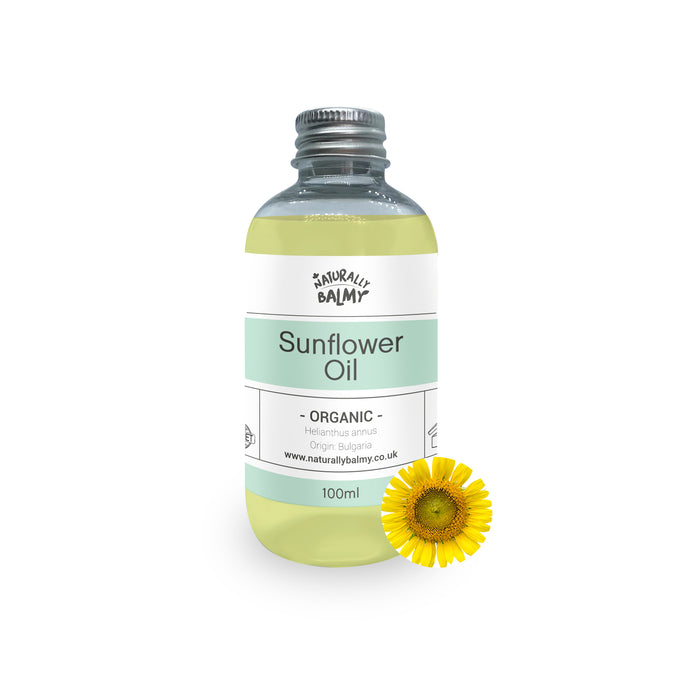INCI name
Helianthus annus
What is Sunflower Oil?
Sunflower Oil is a versatile, skin conditioning emollient that contains more Vitamin E than any other vegetable oil. Rich in Oleic Acids with particularly high amounts of Vitamins A, D, and E, it also has beneficial amounts of lecithin and unsaturated fatty acids.
What are the benefits of using Sunflower Oil on your skin?
This oil is easily absorbed into the skin and is softening and moisturising. Sunflower oil forms a protective layer on the skin to prevent loss of moisture.
What are the benefits of using Sunflower Oil on your hair?
With a high fatty acid concentration, this oil has great emollient benefits. Emollients provide a protective barrier to moisturise, soften, and smooth the hair. Its light texture means it easily penetrates the hair shaft to lock in hydration, helping to improve dry hair and damage.
What does Sunflower Oil look like?
A clear to pale yellow oil.
What does Sunflower Oil smell like?
A bland, characteristic scent.
How to use Sunflower Oil
Use up to 100% of this oil in anhydrous products such as balms, masks, butters, scrubs, emulsions and haircare products. It has poor heat and oxidation stability, depending on the type of oil, but absorbs into the skin well and is an ideal substitute for soybean, representing an alternative source in the production of lecithin due to the unacceptability of genetically modified soybean in natural cosmetics.
History and origins of Sunflower Oil
Used in North and South America, where it originates, for centuries, this plant is a staple in cosmetics and food, and was first discovered as an oil from the plant in the early 18th century.
How is Sunflower Oil made?
The oil is extracted by applying great pressure to the sunflower seeds and collecting the oil. It is a Cold Pressed oil.
Is Sunflower Oil suitable for vegans?
Yes.
Fatty acids
Linoleic Acid - 44-75%; Oleic Acid – 14-35%; Palmitic Acid – 3-6%; Arachidic Acid - 0.6-4%; Stearic Acid – 1-3%.
Natural contents
Vitamins A, B1, B2, B6, D and E, rich in protein and minerals.
 Technical Documents
Technical Documents
